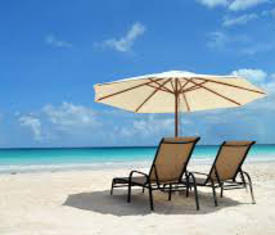Probably a dumb question, but an honest ask!

MissSusieQ
Posts: 533 Member
So.. I went on a delicious salty binge last night. Waaaay too much salt. Drank over a litre of water and didn't pee all night too much salt.
Today I am so bloated and retaining water like it's going out of style. My face looks like the moon.
How I I tell my body it was a once off and there's no need to hang onto that extra H2O?
Today I am so bloated and retaining water like it's going out of style. My face looks like the moon.
How I I tell my body it was a once off and there's no need to hang onto that extra H2O?
0
Replies
-
Drink extra water for the next day or two..2
-
Yeah, it will drop off in two or three days.
1 -
I had Chinese for lunch today. I will wake up tomorrow with swollen ankles. Tomorrow I will be chugging the water! I am very salt sensitive. :-O1
-
Ready2Rock206 wrote: »Drink extra water for the next day or two..
Endorsed. Maybe a sweat-inducing workout, besides - if and only if you're conditioned to that sort of thing. If you're not, just drink the water.1 -
You don't tell it anything, lol. It's like trying to tell a rock not to fall to the ground when you drop it - just not gonna happen.
Drink plenty of fluids and give it time
~Lyssa3 -
Potassium. Potassium and sodium are similar but opposite electrolytes. Sodium pulls water into the cell and potassium releases it. If they aren't balanced bad things happen.4
-
Ugh. I'm consuming salty carbs as I read this. Won't look cute for date night. I'll drink water tomorrow and lay off the carbs/salt. Maybe hit the sauna if I actually give that much of a *kitten*...which I probably won't. I hate the puffy face though.0
-
Drink extra water, if you workout out in some solid cardio or met-con type sweat inducing workout, and drink something meant to balance electrolytes. At the end of the day any bloating or water weight retained is not real weight gain so don't let it mentally stress you out. Unlike real weight gain it will in fact go away overnight.0
-
Drinking water doesn't seem like it would have the desired effect. If you chase sodium with water you may just be adding water that the sodium will hang onto.1
-
TimothyFish wrote: »Drinking water doesn't seem like it would have the desired effect. If you chase sodium with water you may just be adding water that the sodium will hang onto.
That's not how it works. Your potassium theory is off too.
The reason you need to watch your relative intake of sodium and potassium is that your body needs to have approximately a 1 : 1 ratio of sodium and potassium ions to function properly. It uses the relative concentrations of sodium and potassium for a variety of biological functions including muscle contractions (with your heart being a very important muscle).
But potassium weighs 40 g/mol while sodium weighs 24 g/mol - so, since normal people measure their sodium and potassium intake in grams and milligrams (rather than in moles), the "rule of thumb" is twice as many milligrams of potassium as sodium.
Drinking water decreases the concentration of *all* the electrolytes in your body, and when you pee out the excess water, it takes some of them with it. But the sodium doesn't "hold onto" water any more than potassium does.
So, you're right that if someone consumes a lot of sodium, they really ought to up their potassium intake for health reasons. But drinking water will help to flush out the excess sodium; it'll just take some potassium with it.5 -
SusanMFindlay wrote: »TimothyFish wrote: »Drinking water doesn't seem like it would have the desired effect. If you chase sodium with water you may just be adding water that the sodium will hang onto.
That's not how it works. Your potassium theory is off too.
The reason you need to watch your relative intake of sodium and potassium is that your body needs to have approximately a 1 : 1 ratio of sodium and potassium ions to function properly. It uses the relative concentrations of sodium and potassium for a variety of biological functions including muscle contractions (with your heart being a very important muscle).
But potassium weighs 40 g/mol while sodium weighs 24 g/mol - so, since normal people measure their sodium and potassium intake in grams and milligrams (rather than in moles), the "rule of thumb" is twice as many milligrams of potassium as sodium.
Drinking water decreases the concentration of *all* the electrolytes in your body, and when you pee out the excess water, it takes some of them with it. But the sodium doesn't "hold onto" water any more than potassium does.
So, you're right that if someone consumes a lot of sodium, they really ought to up their potassium intake for health reasons. But drinking water will help to flush out the excess sodium; it'll just take some potassium with it.
The reason sodium can result in increased blood pressure is because the red blood cells have too much water in them, making the blood thicker. This is an example of sodium holding onto water. Drinking more water doesn't encourage the cells to release this water. You are right that one should have more potassium than sodium, though your explanation of that isn't quite right.1 -
Your body will flush this out eventually. It can handle this unless you have some health issue. Lots of water will help, so will potassium. Relax.0
-
MissSusieQ wrote: »So.. I went on a delicious salty binge last night. Waaaay too much salt. Drank over a litre of water and didn't pee all night too much salt.
Today I am so bloated and retaining water like it's going out of style. My face looks like the moon.
How I I tell my body it was a once off and there's no need to hang onto that extra H2O?
Don't. Eat normal and drink extra water and your body will figure out it all by itself in a day or two.0 -
TimothyFish wrote: »SusanMFindlay wrote: »TimothyFish wrote: »Drinking water doesn't seem like it would have the desired effect. If you chase sodium with water you may just be adding water that the sodium will hang onto.
That's not how it works. Your potassium theory is off too.
The reason you need to watch your relative intake of sodium and potassium is that your body needs to have approximately a 1 : 1 ratio of sodium and potassium ions to function properly. It uses the relative concentrations of sodium and potassium for a variety of biological functions including muscle contractions (with your heart being a very important muscle).
But potassium weighs 40 g/mol while sodium weighs 24 g/mol - so, since normal people measure their sodium and potassium intake in grams and milligrams (rather than in moles), the "rule of thumb" is twice as many milligrams of potassium as sodium.
Drinking water decreases the concentration of *all* the electrolytes in your body, and when you pee out the excess water, it takes some of them with it. But the sodium doesn't "hold onto" water any more than potassium does.
So, you're right that if someone consumes a lot of sodium, they really ought to up their potassium intake for health reasons. But drinking water will help to flush out the excess sodium; it'll just take some potassium with it.
The reason sodium can result in increased blood pressure is because the red blood cells have too much water in them, making the blood thicker. This is an example of sodium holding onto water. Drinking more water doesn't encourage the cells to release this water. You are right that one should have more potassium than sodium, though your explanation of that isn't quite right.
What are your sources for this information? Because what you're saying sounds very "hand wavy" as if taken from a blog or similar. Sodium is no different from any other ion in terms of its ability to "hold water". For an explanation of how interfering with the sodium-potassium balance can elevate blood pressure, see http://ajpregu.physiology.org/content/ajpregu/290/3/R546.full.pdf
For the most part, potassium is inside cells while sodium is outside cells. There are transport proteins that keep it that way. In particular, sodium-potassium-ATPase pumps 3 potassium cations into the cell in exchange for removing 2 sodium cations from the cell. Since sodium and potassium have the same charge as each other, moving 3 ions one way and 2 ions the other way changes the charge balance and, since most of our muscles function based on electrochemical signals based on charge balance, that can result in vasoconstriction (aka tightness of the blood vessels).
"Furthermore, acute sodium loading increases blood pressure in potassium-depleted subjects but it had no effect in subjects ingesting normal amounts of potassium." - https://www.ncbi.nlm.nih.gov/pubmed/2104250
And, yes, potassium *does* weigh more than sodium. And that *is* the main reason why we need to consume a larger mass of potassium than of sodium. The recommended intake levels (4000 mg potassium; 2500 mg sodium) match up almost perfectly with their molar masses (40 g/mol and 24 g/mol).1
This discussion has been closed.
Categories
- All Categories
- 1.4M Health, Wellness and Goals
- 398.3K Introduce Yourself
- 44.7K Getting Started
- 261K Health and Weight Loss
- 176.4K Food and Nutrition
- 47.7K Recipes
- 233K Fitness and Exercise
- 462 Sleep, Mindfulness and Overall Wellness
- 6.5K Goal: Maintaining Weight
- 8.7K Goal: Gaining Weight and Body Building
- 153.5K Motivation and Support
- 8.4K Challenges
- 1.4K Debate Club
- 96.5K Chit-Chat
- 2.6K Fun and Games
- 4.7K MyFitnessPal Information
- 17 News and Announcements
- 21 MyFitnessPal Academy
- 1.5K Feature Suggestions and Ideas
- 3.2K MyFitnessPal Tech Support Questions









